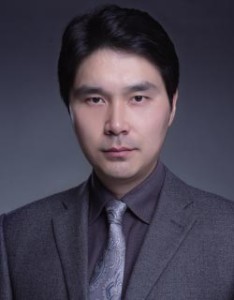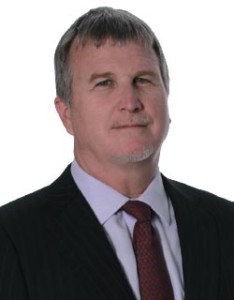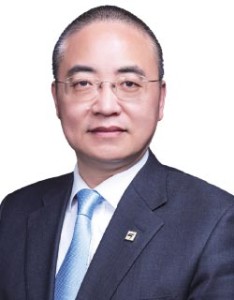Running China’s economy requires complex regulatory manoeuvring, but the philosophy behind most new rules is simpler, writes Richard Li
In the past year, China has juggled the streamlining of regulation with a tighter grip on the market. This is all in line with the prime item on its agenda, which is to further open its market, and the central government has clearly focused more on the quality of economic development.
Protecting innovation and furthering the real economy – the part of the economy that actually produces goods or services – have been two of the key drivers behind many recent changes to regulatory or judicial rules and practice, including adjustments related to the banking industry, capital market, intellectual property (IP) and foreign exchange.
Improving the judicial system to address an increasing number of commercial disputes – which are also growing more complicated and specialized – is also a priority of the government. Attempts have been made to make China’s judicial system more transparent and the court rulings more consistent, and also to give parties more convenience when resorting to the court system for dispute settlement.
The power of the internet is another challenge. The internet brings the market and its users both vigour and risk. Internet finance has already become one of the key targets on the regulatory radar. The newly enforced Cybersecurity Law brings almost ubiquitous influence – on both Chinese and foreign companies with cross-border business – but still awaits more details and clarification, and the uncertainty is a concern for many.
Outbound and inbound opportunities
The central government is vigorously promoting the Belt and Road initiative. In terms of the development of the Belt and Road, “we have observed that China’s judicial practice is providing powerful judicial services and protection, for example, establishing an extraterritorial law database and precedent database, promoting the role of international arbitration, issuing numerous judicial interpretations, etc., in an effort to create a fair and impartial business environment that promotes sustainable development,” says Clare Lu, a partner in the Shanghai office of Qin Li Law Firm.
In the field of cross-border M&A, Lu has noted that, on the one hand, the government has shifted from approval to recordal for cross-border M&A, simplifying outbound investment procedures, while, on the other hand, it has strengthened the review of the genuineness of projects invested in overseas countries. “This change will be beneficial to industrial investors that have a genuine need to invest abroad in accelerating and improving their cross-border disposition,” says Lu. She notes that, in addition to those of state-owned enterprises (SOEs), the cross-border M&A projects of private enterprises are also gradually increasing, and an investor needs to consider how to effectively manage the process and timing of the entire project while also controlling risk.
You must be a
subscribersubscribersubscribersubscriber
to read this content, please
subscribesubscribesubscribesubscribe
today.
For group subscribers, please click here to access.
Interested in group subscription? Please contact us.
你需要登录去解锁本文内容。欢迎注册账号。如果想阅读月刊所有文章,欢迎成为我们的订阅会员成为我们的订阅会员。
Compliance trends
Leon C G Liu, a partner in the Shanghai office of MWE China Law Offices, says compliance in China does not have a particularly complete and clear definition.

Partner
MWE China Law Offices
“Based on my personal understanding, the idea of compliance is dealing with the relationship between the law and the code of ethics on the one hand, and business on the other,” he says. “However, its ultimate essence is how enterprises, particularly multinational enterprises, deal with disagreements or even conflicts with governments based on the law and code of ethics, and how they interact with governments with regard to such actual or potential disagreements.”
Liu argues that compliance can be divided into two types − proactive and reactive. “Proactive compliance can refer to an enterprise actively establishing or improving its internal governance structure and management system, and strengthening its implementation before a problem arises,” he says. “Alternatively, it can refer to an enterprise actively communicating with government authorities and formulating a plan that can both satisfy the government’s requirements and lead to achievement of its own business objectives when the enterprise faces certain regulatory restrictions.”
When an enterprise takes appropriate measures in response to law enforcement or investigation by a government authority, or based on an internal investigation, this is classic reactive compliance. Liu says that long-arm jurisdiction is one of the hot-button issues in the reactive compliance field in China right now. For example, the US government’s sanctioning of Bank of Dandong in China not long ago is a type of long-arm jurisdiction.
“In the past, the central government failed to attach sufficient importance to acts of long-arm jurisdiction carried out in China by the US government, based on [such regulations as the] FCPA [Foreign Corrupt Practices Act], and relatively infrequently actively assisted Chinese enterprises in responding to overseas compliance investigations or legal actions,” he says.
“However, things are different now. Just in the past few weeks, the Ministry of Foreign Affairs publicly stated its objection to long-arm jurisdiction on several occasions. In the past two years, we have also assisted multinational corporation clients on a number of occasions in responding to prickly issues of compliance triggered by cross-border law enforcement conflicts.”
Insurance change
Another significant regulatory development is in the insurance industry. The China Insurance Regulatory Commission (CIRC), the regulatory body on companies and activities in the insurance industry, published its Notice on Closing Regulatory Loopholes and Building Effective Insurance Regulatory Framework in May 2017, signalling its intent to improve the regulatory regime and supervision of the insurance industry, says Brinton Scott, the managing partner of Winston & Strawn’s Shanghai office.

Managing Partner
Winston & Strawn
The notice states that the CIRC will promulgate and improve regulations in the area of corporate governance, fund use and the intermediary market. Scott says the CIRC has promulgated its draft Measures for Equity Management of Insurance Companies which, after it becomes effective, will divide shareholders of insurance company into different categories according to their equity ratio and control over the insurance company.
Scott says the notice states that the CIRC will strengthen scrutiny of the sources of investment funds, the investigation on the background, qualification of, and association between, the investors, and the imposition of stricter supervision on capital increase, equity transfers and connected transactions.
Market updates
More observations from legal experts on important trending issues

Partner
JunZeJun Law Offices
“A Chinese enterprise that is planning to develop overseas would do best to position itself as a global multinational corporation and design its corporate management structure and operational structure around this concept. Taking the establishment of functional departments as an example, all large multinationals that come to China have their governmental relations, media, legal affairs, compliance, tax and other such functional departments, so as to better deal with the various issues they encounter in their investments.
“In [my] surveys, more than 40% of the enterprises that I interviewed responded that they had encountered tax audits abroad conducted by the local government. Why do Chinese enterprises regularly encounter tax issues? This is because many Chinese enterprises have not established a tax department. All of these functional departments are ones that Chinese enterprises should duly establish before going global.”
TANG GONGYUAN, Partner, JunZeJun Law Offices, Beijing

Partner
Elvinger Hoss Prussen
“[One important area of development in China is the] development of green finance, including but not limited to the publication of green indices, including CUFE-CNI Green Bond Index Series, which was launched by the Central University of Finance and Economics in Beijing, the Shenzhen Stock Exchange and the Luxembourg Stock Exchange on 20 March 2017.
“The CUFE-CNI Green Bond Index Series is the first Chinese Green Bond index, which acts as a market benchmark for Chinese green bonds. Luxembourg investment fund or other corporate vehicles have and will continue to contribute in the development of green finance by investing into this key area of the Chinese economy.”
XAVIER LE SOURNE, Partner, Elvinger Hoss Prussen, Hong Kong
“The Administrative Measures for Motor Vehicle Sales (implemented from 1 July 2017) issued by the Ministry of Commerce include numerous anti-monopoly elements, providing greater protection to consumers and motor vehicle dealers. Referring to the Anti-Monopoly Law, the measures make relatively major adjustments to the relationship between certain motor vehicle brand manufacturers and dealers. For example, in the past, a dealer could only sell one brand, but now they can sell different brands. In the past, sales and after-sales had to be linked together, but now they can be separate.”
WU PENG, Partner, Zhong Lun Law Firm, Beijing

Partner
Zhenghan Law Firm
“In the first half of 2017, we participated in a few arbitration and litigation cases involving large state-owned enterprises (SOEs). In the past few years, the number of foreign dispute cases that SOEs have had to respond to has increased. In recent years, some SOEs that hold a leading position in their industries have acquired a number of quality companies overseas. This is beneficial to the all-round development of the enterprises.
“However, these cross-border transactions themselves are quite complex, and are also subject to some foreign laws. Some transactions additionally involve newly emergent enterprises or innovative structures. All of these factors may result in the SOEs encountering issues that they had not anticipated at the time of the acquisition.”
NI WEI, Partner, Zhenghan Law Firm, Shanghai

Chief Partner
Lanbai Law Firm
“Flexible staffing [is one of the fields on which we keep a close eye], particularly flexible staffing in the sharing economy on internet platforms. Although the state currently does not have express laws to regulate this sector, state leaders have recently expressed support for flexible staffing and the broad-based survey activities of relevant authorities, indicating that this mode of staffing has already drawn the close attention of relevant state authorities. Perhaps we can anticipate the issuance of relevant guiding documents in the near future.
“In the judicial field, judicial authorities are essentially holding a wait and see attitude, not lightly determining employment relationships [in this sector]. The courts in certain regions are somewhat more progressive, but the specific effects and demonstration effect require further observation.”
GEORGE LU, Chief Partner, Lanbai Law Firm, Shanghai
“In the labour law field, the issue of the lawfulness of dismissal has remained, in the past few years, a hot-button issue for which clients come to us for assistance. The requirements of China’s Labour Law in respect of dismissal are extremely stringent, and accordingly, the issue of dismissal remains a dispute that is of great concern to enterprises, and can easily give rise to problems and pose the most challenges. The second hot-button issue is that of non-compete. Non-compete touches upon the poaching of important talent, not run of the mill employees. Accordingly, it is one to which enterprises attach great importance.”
LU JINGBO, Founding Partner, River Delta Law Firm, Shanghai
“This year, food and pharmaceutical-related crimes are the two key areas on which the law enforcement authorities are concentrating. Accordingly, we are paying greater attention to crime in these two industries, including such violations of the law and criminal offences as producing or selling substandard products, producing or selling foods that fail to meet safety standards, and, in the pharmaceutical industry, issuing false dedicated value-added tax invoices.”
MA JINGYUN, Hiways Law Firm, Shanghai





















